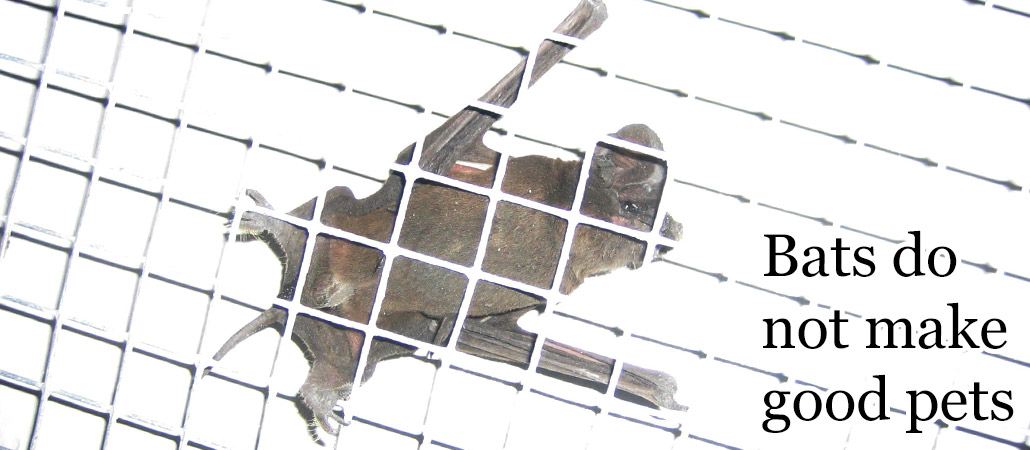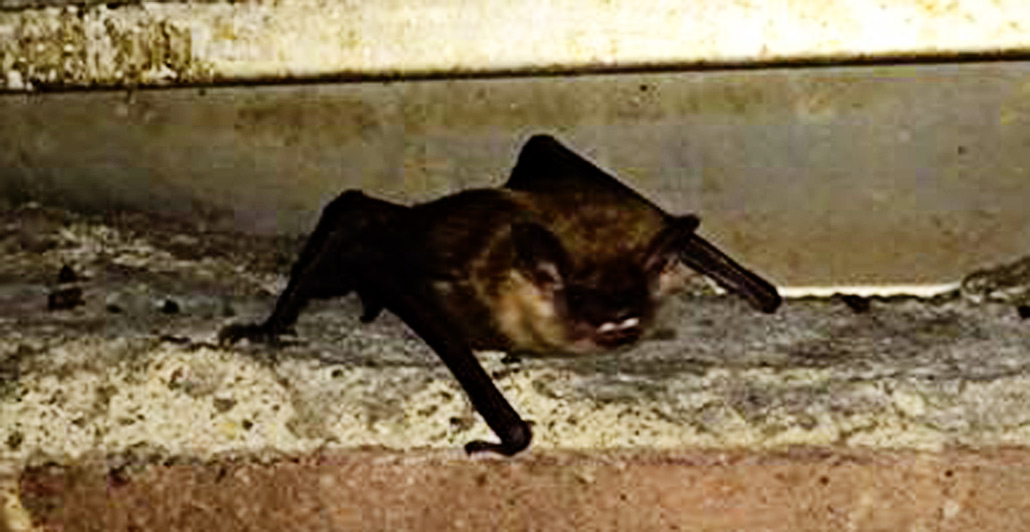- USA Wildlife Removal Education Guide - Do Bats Make Good Pets?
Do Bats Make Good Pets?
The director at the excellent Bat World Sanctuary found this web page and wrote me this: " We came across your bats as pets page and wanted to make you aware that keeping insectivorous bats as pets is actually illegal. Wildlife rehabilitators must be vaccinated against rabies, receive specialized training and must also obtain state, and sometimes federal, permits in order to care for insectivorous bats. Aside from that, keeping an insectivorous bat as a pet is considered animal cruelty as they are very complicated animals that require an enormous amount of specific care, specialized housing, nutrition, etc. We rescue dozens of bats annually that people have tried to keep as pets for a few days and they are at deaths door when we receive them. Without special training, the public has no idea how to care for these animals and they are usually dead within a week. Additionally, bats absolutely cannot be domesticated."
She says it better than I can! You can see the text below which she objected to, and it's true that it's not the best of info.

THE ORIGINAL INFO ABOUT BATS AS PETS
Some species of bats can become domesticated, meaning that they can accommodate to humans, even becoming clingy and cuddly. But where they can live as long as 30 years in the wild, their life span in captivity is usually much shorter. Often, it's only five or six years and that alone should discourage people from keeping them as pets. Bats need to fly and they don't do well when confined to a cage.

There are more than 1,000 species of bats, 45 of them living in the United States. Most species are protected by law, with both state and federal regulations covering their capture and retention and usually restricting their legal ownership to institutions such as zoos, wildlife sanctuaries and research facilities. To keep a bat in captivity, even these entities must be licensed by the U.S. Department of Agriculture and obtain the necessary permits.
It is widely held notion that bats carry rabies, but in fact, the incidence is not greater than it is in virtually any other animal species – as low as one or two percent of the population. But that's not the key issue, which is what is best for you and the animal. For one thing bats are not true domesticated animals and as a result, they don't have the normally passive temperament of cats and dogs. They may be inclined to bite when upset, excited or in pain and if they do so, they are subject to quarantine and possible extermination. And you are subject to the conventional rabies protocol, which is not pleasant.
If you do decide that you must have a pet bat, know that it has requirements that while easily fulfilled in the wild, can be which difficult to maintain for a pet owner. For example, feeding: in the wild, bats can consume 500- to 1,000 mosquitoes and other flying insects in a single night, in two or three foraging expeditions. The pursuit keeps their fragile bodies strong while also satisfying the nutrition demands of their bodies' high metabolism. As pets, they will probably have to live on meal worms.
Bats' living quarters are also a factor. They hibernate during the day, clustering together and hanging upside down in the roost. They are highly social, particularly the females, who often form "clubby" relationships with other females that can endure over many years. This is their nature, and it is not duplicated in cage life no matter how carefully they are tended.
So think twice before you take on the responsibility of a pet bat, legal or otherwise. A bat may crawl on your lapel, but it won't lick your hand like a schnauzer.
If you need help, we service the entire USA! Click here for a wildlife removal specialist in your town!
Go back to the main Bat Removal page for more information about Do Bats Make Good Pets?.
Read more about bat control in my educational articles. Find out if a bat house will prevent bats from entering your home, and whether or not the city or county animal services will help with a bat issue. Learn if a bright light or high pitch sound deterrent machine will work on bats, and if a bat in your attic will have a nest of babies. Find out if a pest control company will remove a bat, and whether it is Legal to trap bats.
I can teach you how to Locate and Remove a Dead Bat and tell you everything you need to know about Bat Exclusion Material. Learn more about Bat Mating Habits and the summer maternity season. Learn how to get bats out of your attic and the different property modifications you can do to keep bat populations down.
Find out if mothballs or ammonia really help repel bats and even if bats make Good Pets. Read my thoughts on if you should ever Poison a Bat, and my best advice on how to clean Bat Feces out of your Attic.

